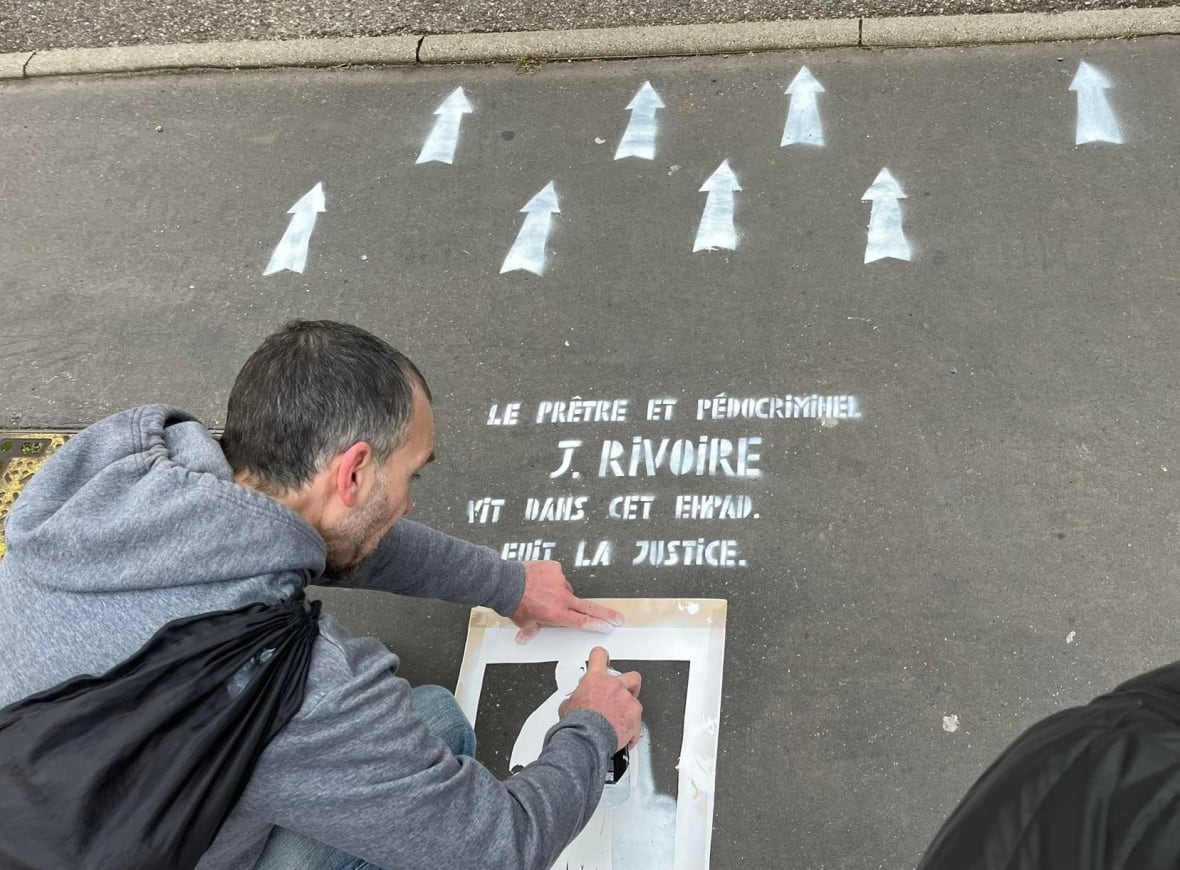Proposed Deportation To Remote Island Ignites Protest In France

Table of Contents
The Proposed Deportation Plan: Details and Rationale
The French government's proposed plan involves deporting asylum seekers and undocumented immigrants to a remote island, reportedly [Insert Island Name Here], located [Insert Location Details Here]. While the exact number of individuals targeted remains unclear, government sources suggest the plan aims to address what they describe as "overcrowding in existing detention centers" and manage the perceived "influx of undocumented immigrants."
-
Specific details of the proposed plan: The plan lacks precise details regarding the selection process for deportation, the duration of stay on the island, and the provision of essential services like food, water, and healthcare. The timeline for implementation also remains ambiguous.
-
The French government's official justification: The official statement justifies the plan as a necessary measure to alleviate pressure on the existing asylum system and manage the flow of migrants. However, critics argue this justification ignores the fundamental human rights of those affected.
-
Analysis of the plan's feasibility and potential logistical challenges: The plan faces significant logistical hurdles. The remote location of the proposed island presents challenges in terms of transportation, infrastructure development, and the provision of basic necessities. The cost associated with such a large-scale relocation is also a significant concern.
-
Mention any legal challenges or potential human rights violations: Legal experts have raised serious concerns about the potential for human rights violations, arguing that the plan may breach international and national laws protecting asylum seekers and refugees. Several human rights organizations have announced their intention to challenge the plan legally.
Public Outrage and the Protest Movement
The proposed deportation plan has provoked widespread public outrage and triggered a significant protest movement across France. Demonstrations have taken place in major cities, including Paris, Marseille, and Lyon, with participants ranging from established human rights organizations like Amnesty International and Human Rights Watch to various political parties and concerned citizens.
-
Description of the protests: Protests have varied in size, from small, localized demonstrations to large-scale marches involving thousands of participants. Civil disobedience tactics, including sit-ins and road blockades, have been employed.
-
Key demands of the protesters: Protesters demand the immediate abandonment of the deportation plan, calling for improved asylum procedures that guarantee fair and efficient processing of applications, a greater emphasis on integration programs for immigrants, and a reassessment of France’s immigration policies to ensure they adhere to international human rights standards.
-
Analysis of public opinion polls and media coverage of the protests: Public opinion polls indicate significant opposition to the plan, with a majority expressing concern over its potential human rights implications. The media has played a crucial role in covering the protests, raising awareness of the issue and fueling public debate.
-
Mention any notable incidents or clashes between protesters and authorities: [Insert information about any clashes or notable incidents between protesters and law enforcement].
International Condemnation and Diplomatic Implications
The proposed deportation plan has drawn strong international condemnation. Several international organizations, including the United Nations High Commissioner for Refugees (UNHCR) and the European Union, have expressed deep concern over the potential human rights implications of the plan.
-
Statements and actions from international organizations: The UNHCR has issued statements emphasizing the importance of upholding the principle of non-refoulement, which prohibits the return of asylum seekers to places where they face a risk of persecution.
-
Reactions from other countries and governments: [Insert reactions from other governments and countries].
-
Potential impact on France's international relations and reputation: The plan's implementation could severely damage France's international standing and reputation, particularly within the European Union and among international human rights organizations.
-
Discussion of any potential legal repercussions at the international level: The plan could face legal challenges at the international level, potentially leading to sanctions or other repercussions.
The Human Rights Dimension of the Deportation Plan
The deportation plan raises serious ethical and legal concerns regarding the violation of fundamental human rights. Critics argue that the plan lacks transparency, due process, and adequate safeguards to protect the rights of vulnerable individuals.
-
Specific human rights concerns raised by critics: Concerns include the potential for inhumane treatment, denial of access to legal counsel, lack of access to adequate healthcare, and the risk of refoulement.
-
Analysis of the plan's compliance with international human rights law and conventions: The plan appears to be in violation of several international human rights treaties and conventions, including the Refugee Convention and the International Covenant on Civil and Political Rights.
-
Expert opinions and statements from human rights organizations: Leading human rights organizations have condemned the plan, characterizing it as a violation of fundamental human rights and international law.
Conclusion
The proposed deportation to a remote island in France has sparked a major controversy, highlighting critical issues surrounding immigration policy and human rights. The plan's details, the scale of the protests, the international response, and the grave human rights concerns raised, all point to a situation demanding urgent attention. Understanding the complexities of this situation is vital for informed public discourse. Continue to follow the development of this story and stay informed about the evolving debate on immigration and deportation policies in France. Join the conversation and share your thoughts on the #FrenchDeportationDebate.

Featured Posts
-
 What Abusa Means For Us Businesses And Consumers
May 19, 2025
What Abusa Means For Us Businesses And Consumers
May 19, 2025 -
 Understanding The Value Of Middle Managers Benefits For Companies And Their Staff
May 19, 2025
Understanding The Value Of Middle Managers Benefits For Companies And Their Staff
May 19, 2025 -
 Hopkins University To Honor Paige Bueckers With Name Change On May 16th
May 19, 2025
Hopkins University To Honor Paige Bueckers With Name Change On May 16th
May 19, 2025 -
 Assessing The Economic Contribution Of Major Rave Festivals
May 19, 2025
Assessing The Economic Contribution Of Major Rave Festivals
May 19, 2025 -
 Syntrivi Enatenisis Odigos Eksetasis Kai Antimetopisis
May 19, 2025
Syntrivi Enatenisis Odigos Eksetasis Kai Antimetopisis
May 19, 2025
